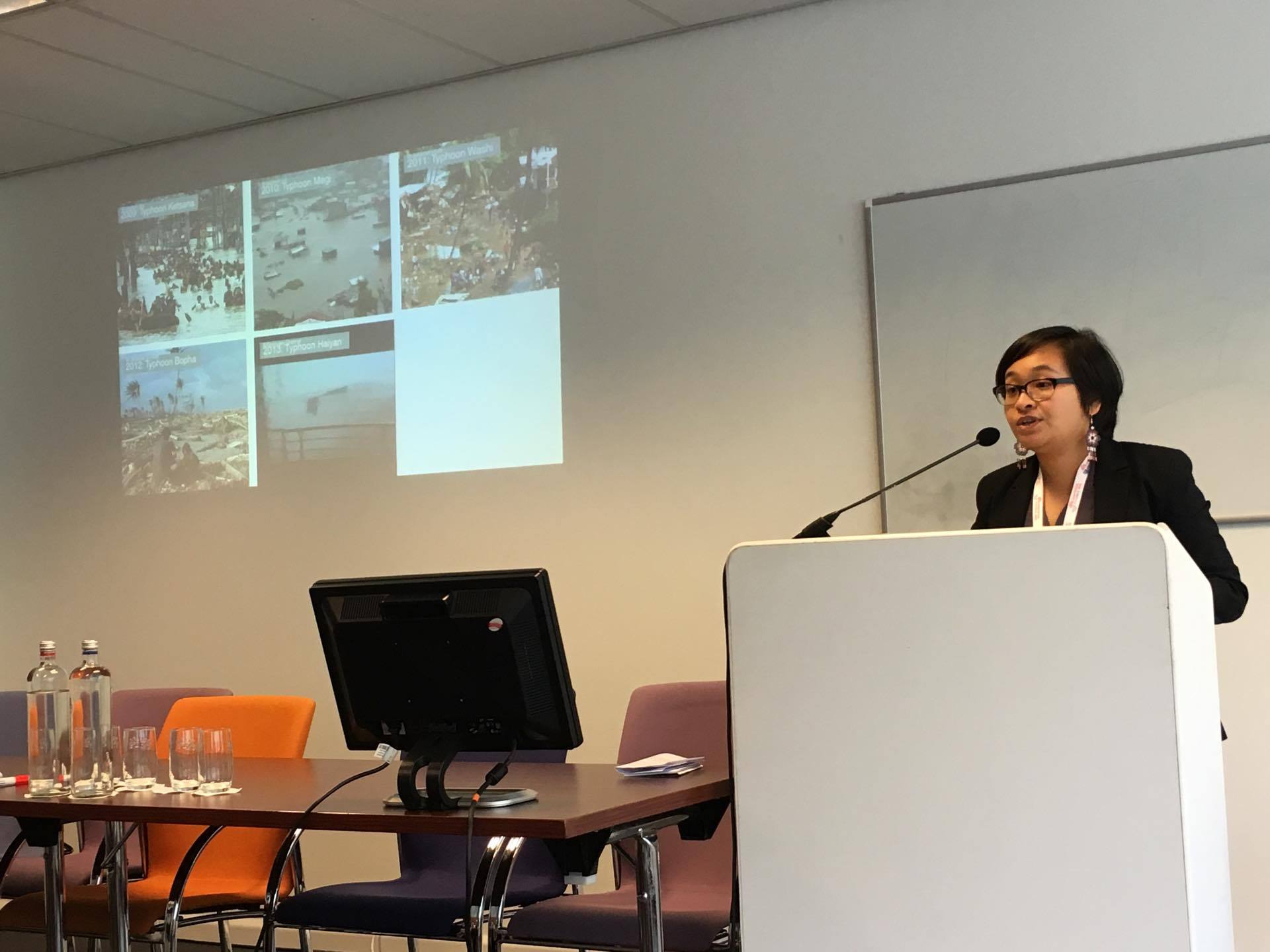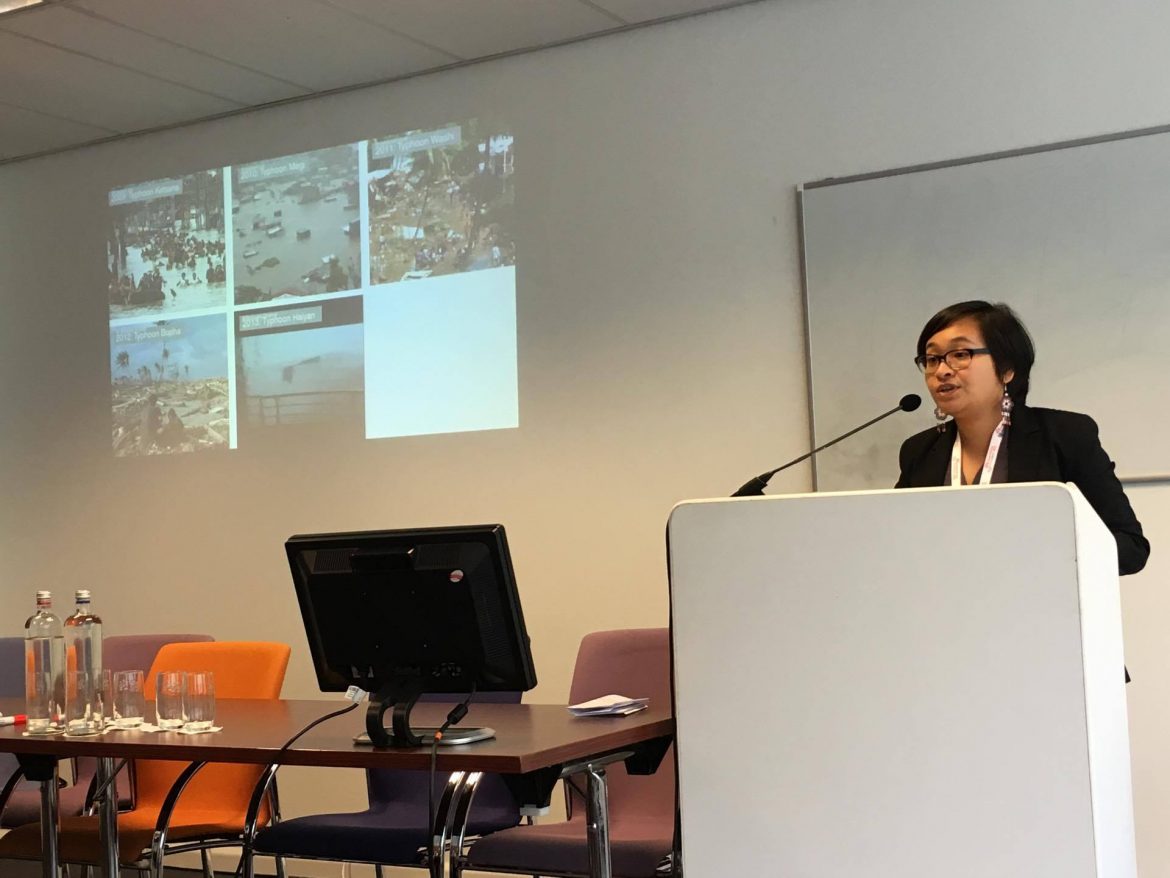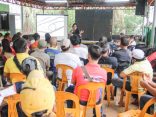Community capacity building ensures sustainability of risk reduction efforts amid change in government officials
 Rotterdam, Netherlands – Change in government officials through election could be a major challenge for disaster risk reduction advocates as it threatens the sustainability of the communities’ gains in pursuing disaster resilience, according to Assistance and Cooperation for Community Resilience and Development, Incorporated (ACCORD) during Adaptation Futures 2016 on May 11, 2016 in Rotterdam, Netherlands.
Rotterdam, Netherlands – Change in government officials through election could be a major challenge for disaster risk reduction advocates as it threatens the sustainability of the communities’ gains in pursuing disaster resilience, according to Assistance and Cooperation for Community Resilience and Development, Incorporated (ACCORD) during Adaptation Futures 2016 on May 11, 2016 in Rotterdam, Netherlands.
Rotterdam, Netherlands – Change in government officials through election could be a major challenge for disaster risk reduction advocates as it threatens the sustainability of the communities’ gains in pursuing disaster resilience, according to Assistance and Cooperation for Community Resilience and Development, Incorporated (ACCORD) during Adaptation Futures 2016 on May 11, 2016 in Rotterdam, Netherlands.
Adaptation Futures is the biennial conference of the Global Programme of Research on Climate Change Vulnerability, Impacts and Adaptation (PROVIA). The conference is a platform for scholars, practitioners, policymakers and business people from all around the world to exchange new and practical ideas, experiences and insights for climate change adaptation.
Speaking in front of the representatives from different countries, Erica Bucog, a project officer of the Partners for Resilience-Philippines, and the representative of ACCORD to the conference said: “Local officials regularly change through elections in every three years, as the Philippines have witnessed last Monday.”
She added: “Leadership changes often result to disruption or even setback of risk management plans and programs.”
Bucog also mentioned that one of the major challenges they experienced was the conventional focus of government at all levels on emergency response and disaster preparedness, which did not make acceptance of integrated risk management instantaneous.
Bucog posited that the shift of Barangay Potrero’s local officials towards IRM was the result of a lot of hard work and science-based recommendations.
ACCORD, as the local implementing partner of Partners for Resilience- Philippines, has been working with the local government of Barangay Potrero in Malabon City for five years to achieve resilience through integrated risk management (IRM). IRM is the principle being advanced by the Partners for Resilience – an alliance of the Netherlands Red Cross, CARE Nederland, Cordaid, the Red Cross Red Crescent Climate Centre, and Wetlands International, supported by the Netherlands Ministry of Foreign Affairs. It involves understanding vulnerabilities, natural hazards, climate change and ecosystem degradation as interconnected factors that exacerbate each other.
Community empowerment is the key
The power to safeguard the communities’ hard-earned path to resilience lies in the community itself. Building the capacities of the vulnerable groups and communities help ensure the sustainability of IRM.
“Sustained engagement with the key stakeholders in a dialogue about IRM, capacity building actions to improve understanding of IRM, and the creation of evidence on the ground or practice showing how IRM works,” said Bucog when asked how they managed to overcome the challenge.
“A community empowered in IRM is a strong foil against disruption and setback,” Bucog said.
Potrero, a testament
Barangay Potrero won a ‘Gawad Kalasag’ award as an indicator of their excellence in disaster risk reduction and humanitarian assistance with the help of the partnership.
Bucog in her speech highlighted the major gains and challenges for five years working with Barangay Potrero, an urban village in Malabon City along the Tullahan River System.
“Through IRM approach, the whole Tullahan River ecosystem was taken into consideration in risk reduction plans,” She said.
She further explained how IRM worked in Potrero where they practiced better solid waste management through segregation, recycling and proper disposal of wasted dumped into the waterways. This will contribute to reduce consequent flooding and augmented income for poor families through bio-intensive gardens. These gardens will use compost that will be produced from the waste management scheme.
“Potrero also collaborated with five cities, consisting of a total 398 urban villages, at risk of flooding in the Tullahan River. They know that their risk management efforts would be ineffective if they do not collaborate with others,” said Bucog, adding that collaboration is a key factor in implementing IRM.
ACCORD brought the experience from Barangay Potrero in addressing urban flood risks through integrated risk management to the international community. The organization believes that the gains of Barangay Potrero is a testament that IRM paves the way to build resilient communities.
The Partners for Resilience is set to replicate and scale up its gains in IRM in the Philippines through Strategic Partners for Resilience, in partnership with the Netherlands Embassy in the Philippines.
###END###




